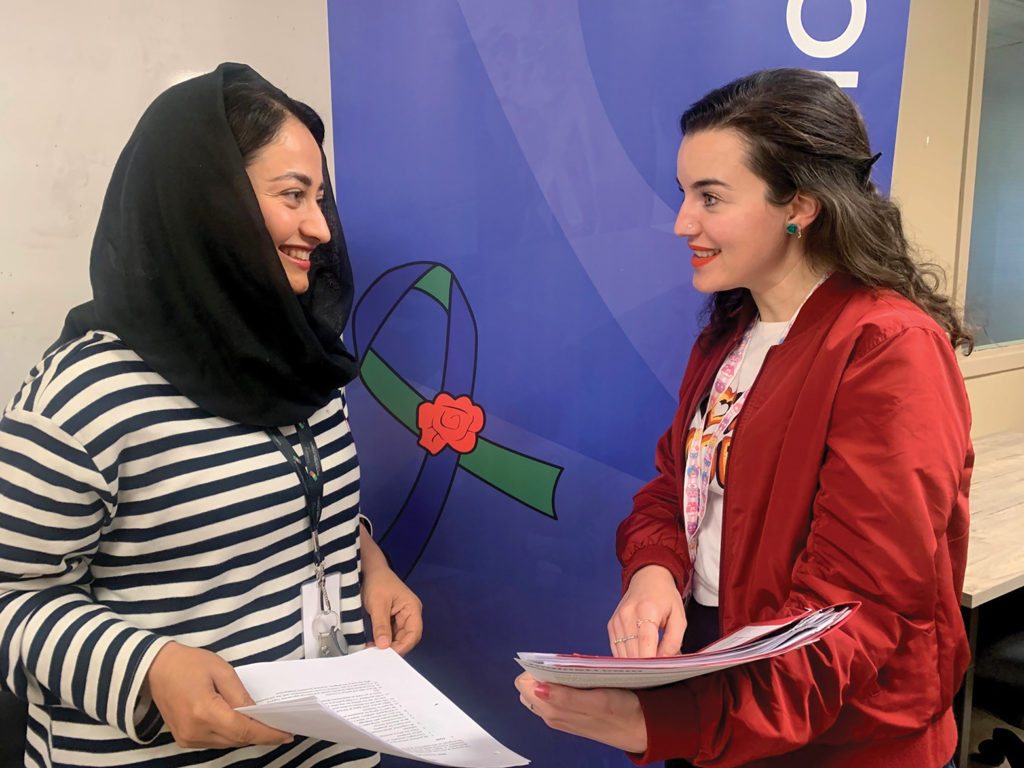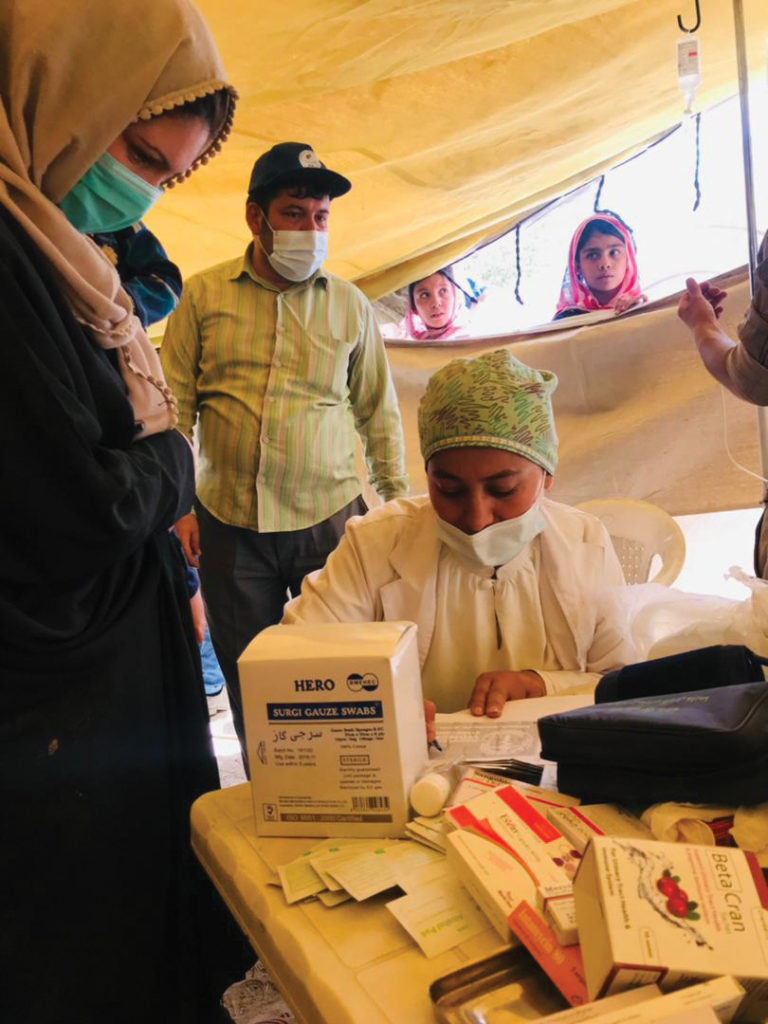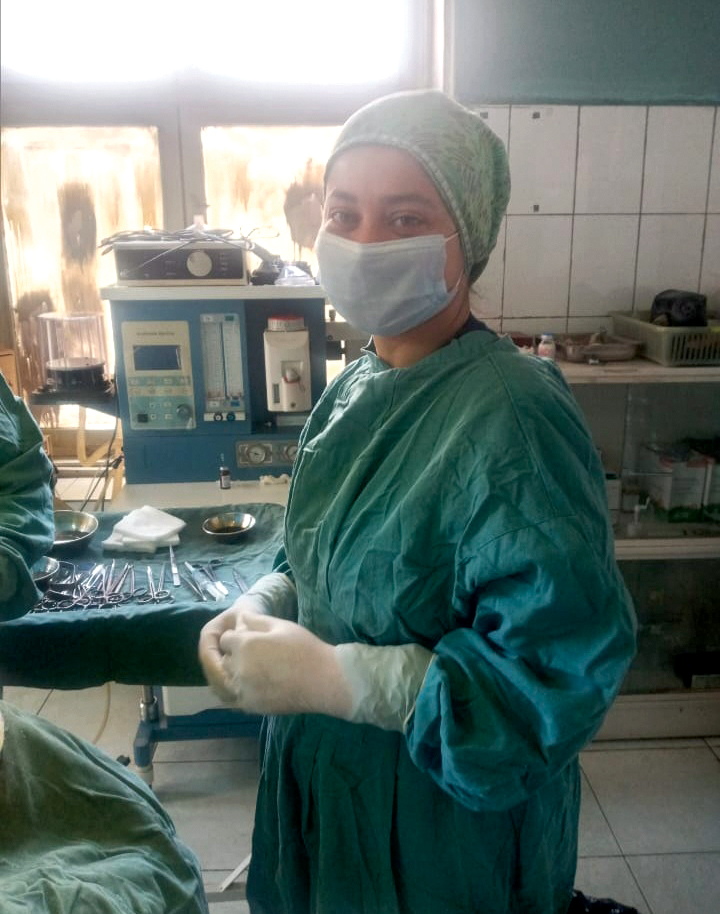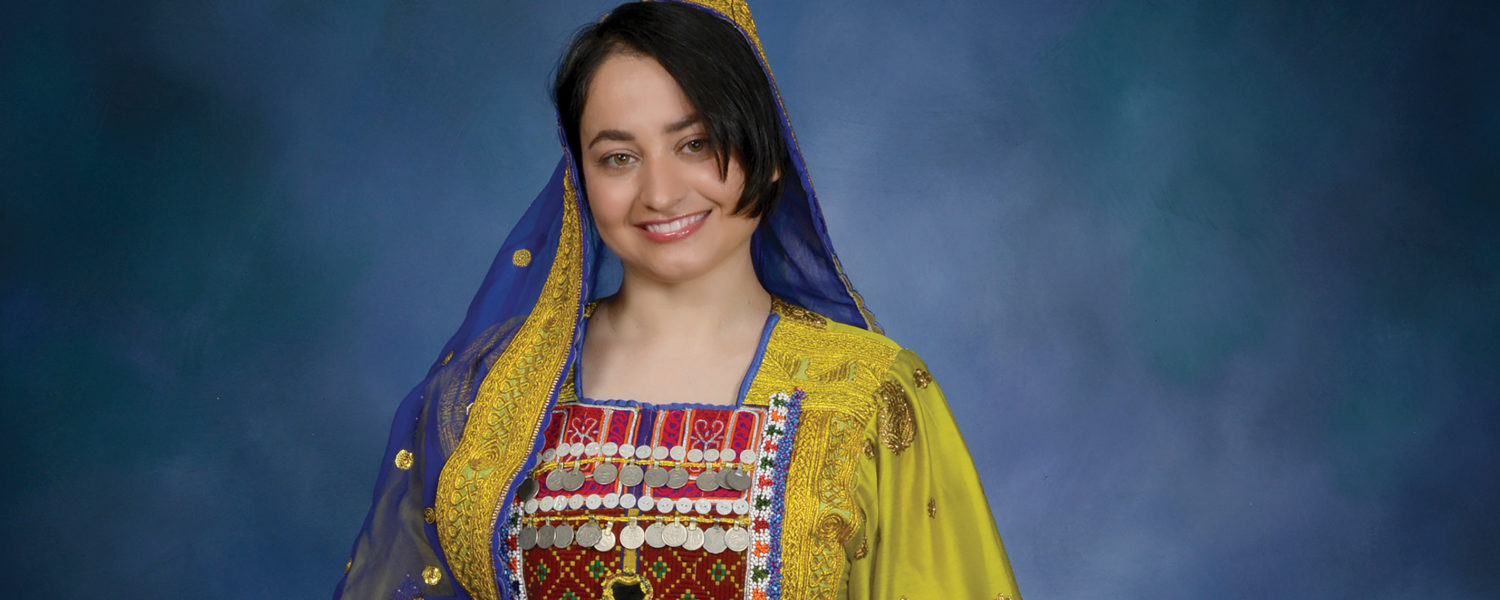An Afghan Woman Now Calls Windsor “Home”
Story by Karen Tinsley
Photography by John Liviero
Kobra Safi’s father strongly believed in education for his six daughters. Illiterate himself, Kobra’s dedicated dad did everything he could to empower her. After receiving top grades in high school and the highest university grades in her Afghanistan district, Kobra’s graduation from medical school was a major breakthrough in a country where education for women is a privilege, not a right.
When the Taliban overtook Afghanistan in 2021, life for Kobra as well as all girls and women took a traumatic turn.
Wherever she went, Kobra feared being stopped by Taliban soldiers. “No matter how much you covered yourself, they could always find something to pick on,” she said.
One day Kobra, a trained plastic surgeon, witnessed in horror as a female colleague was brutally beaten for wearing “inadequate, inappropriate” body coverings while performing surgery.
“Day after day, my terror escalated,” she recalls. “I felt it was only a matter of time when I would be next. My beloved country had become a Taliban prison. Somehow, I knew that getting out was the only option for me.”

Getting out meant giving up her family, friends, and the only life she had ever known. It even meant leaving her husband behind.
“I spent 24 years of my life studying and training to be a plastic surgeon,” Kobra says. “While in university I worked in the media as a reporter. The television station closed because all the staff were women and we were told we could not work anymore. My supervisor was beaten because she refused to close the station doors to her female employees. But now all women must stay home; some women in house-holds where there are no males are begging on the streets to survive.”
Despite crippling fear and grave danger, Kobra and two female colleagues set up an emergency aid camp, risking their lives to support the thousands of displaced Afghans living on the streets of Kabul.
Since recapturing Afghanistan, the Taliban has passed more than 40 laws specifically aimed to restrict and constrain women. Afghan women are being erased from public life, right down to the beheading of female mannequins in shop windows. It is illegal for girls and women to access any education past sixth grade. They cannot eat in restaurants, work in government or leave their homes without a male “guardian”.
Kobra says, “Even recreational walks are forbidden. There is a law banning us from all public parks. Society has taken giant steps backwards.”
At one time, Afghan families enjoyed summer excursions to places like Paghman, a mountain town 20 miles outside Kabul. Approaching the town would generate excitement as the sky transformed from thick layers of dust, smog and debris to clear, brilliant blue. The greenery and open spaces offered haven and respite from suicide bombings, targeted killings, persecution and corruption.

Isolation, lack of freedom and fear of severe punishment for unknowingly violating constantly changing laws has caused women untold anxiety and despair. The ban on indoor and outdoor recreation has many concerned about mounting mental health crises.
Kobra adds, “As a doctor, I know how essential exercise and recreation are for a healthy body. Now for Afghan girls and women, no matter if they are diabetic or have other chronic health conditions, exercise is illegal.”
Even before the Taliban, Afghanistan consistently ranked as the worst country in the world for women; rampant poverty and unrelenting insecurity also ranks it as one of the most unhappy.
The Ministry for Women’s Affairs was eliminated; replacing it is the Ministry for the Propagation of Virtue and Prevention of Vice, an institution mandated to enforce behaviour, including how women dress and when (or whether) they can leave their homes unaccompanied by a man.
Shelters for women fleeing violence are closed. Some who sought refuge in them now languish in women’s prisons. Suicide rates among Afghan women have escalated.
She eventually fled to an Abu Dhabi refugee camp, where she continued helping others, teaching children and volunteering as a translator.
Living in refugee camps with cramped quarters as well as squalid health and safety conditions, families and children experience various degrees of serious, life-changing trauma. Navigating new lives and learning new languages, they are trapped by insecurity and uncertainty about their futures.
Kobra recalls, “I felt very sad and alone in Abu Dhabi. For an entire year, every day was the same as the one before. Sometimes I felt suffocated and could not breathe. I was diagnosed with PTSD and prescribed medication. Also prescribed was exercise, but that was out of the question. I had no way to release my pent-up anger and frustration over what was happening to my life and my country.”
While in camp, Kobra took up painting. Skilled with a scalpel but with no formal art training, “I was surprised to discover not only comfort, but emotional and recreational release.”
After struggling to escape Afghanistan, Kobra decided she wanted to flee Abu Dhabi and her war-torn country and make Canada her new home.
In September 2022, she arrived in Windsor. “I’m free now. I have a brand-new life.”
But Kobra’s new life has come with a staggering personal price tag.
Even though she has received practical, compassionate support from the Multicultural Council of Windsor and our government to acclimatize to her new life in a new home country, sometimes she just can’t help thinking about everything and everyone she had no choice but to leave behind.

“I don’t know if I can accurately describe how that feels. Sometimes it’s like the rug has been yanked out from under me and my heart has been ripped out. I still grieve and cry when I’m alone.”
While she feels empowered by her newfound independence and security, when things get too tough to handle, Kobra still turns to painting. She finds peace through her artwork. Steeped in symbolism and depicting the hate, anger and bloodshed of her past, Kobra’s art is powerful. She paints the suffering of Afghan women as well as their hopes and dreams for a brighter future.
One of Kobra’s hopes and dreams is to practice medicine in Canada.
“Now that I am safe and secure, I want to continue making lives better, even save lives.”
Another hope is to mount an exhibition of her art to raise money to help Afghan girls and women obtain an education.
Recently, the Multicultural Council of Windsor presented Kobra with the Kathleen Thomas Inspire Award, which recognizes newcomers who embody optimism and perseverance.
“Now I am here, but I was once there and one of them. Even now, every Afghan woman is me. I feel their pain and want to show the world.”




Add comment